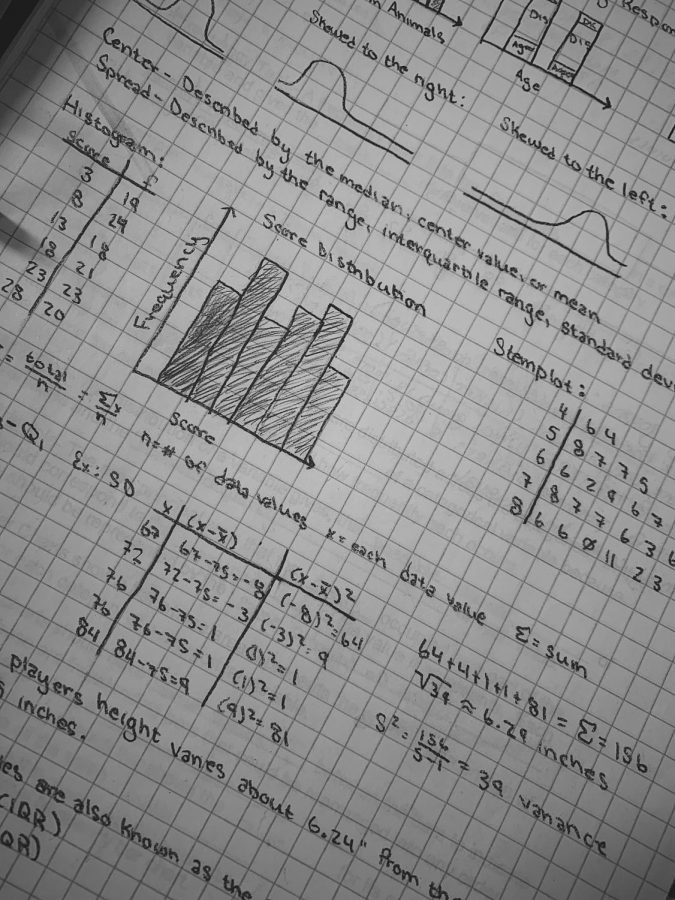America vs Statistics: The Consequences
Statistics notes taken by Lauren Caravalho.
The United States spends more on education for its youth compared to the rest of the world, and yet on the world stage American students are falling behind – especially in mathematics, according to the Pew Research Center. There are many theories as to why this is happening, but the widely-accepted explanation is that the United States doesn’t place enough emphasis on the importance of education. On the Freakonomics’ America’s Math Curriculum Doesn’t Add Up podcast, Steven Levitt, Stephen J. Dubner, and Jo Boaler attempt to debunk why American students are struggling and falling behind on the global stage.
One thing that stuck out to me was when Levitt gave background information into how the U.S. in the late 1700s undertook curriculum changes from elite universities responsible for the teaching of higher-level math, such as algebra and geometry, to teaching these subjects to secondary schools. In 1957, after the launch of Sputnik and living in the throes of the Space Race, mathematics became “a matter of national security.” All of these pre-dated the introduction of modern computers.
Levitt then elaborates by claiming “To me, the biggest change in the world over the last 50 years has been the emergence of data and computing, and it strikes me that the math curriculum hasn’t kept up with that at all, both in terms of thinking about what students need to succeed in the world, but even, maybe more broadly than that, about what role humans play.”
Boaler explains that with the invasive introduction of technology many students will be taking on jobs that will require working with large sets of data, and while students are expected to compute algebra expressions and find the angles in a triangle, statistics should, realistically, take priority over these mostly outdated math curriculums.

While some people champion this statistics-oriented approach to curriculum, which is in stark contrast to the traditional classes our parents grew up with, it has also been met with outrage and backlash. Many parents believe that there is no reason for math to change. One mother told Boaler that “I’m not traditional about anything else, but if you can change math, anything can change.” The issue is that we are so set in this ridgid education system from the Cold War generation when there was such a huge demand for mathematicians to calculate equations by hand to defeat the Russians in the Space Race. However, this no longer holds any importance to the majority of young people seeking an education and career in the modern day. Through this outdated way of thinking, adults are actually hindering our future success, such as future job opportunities, and we are falling behind our peers across the globe.
When researching the best high-paying jobs on Business Insider, the words analyst and marketing kept popping up on my screen. These jobs rely heavily on tech and statistical knowledge, and having these skills could lead you to live a rather comfortable life with a steady career and stable income. But where are we going to acquire this knowledge? In college, many of us will only have four years to attempt to master skills that we could have learned in secondary school.
My best recommendation is to encourage all students at Boulder High to take the AP Statistics course. It’s by no means an easy class, but you get the satisfaction of being able to learn and practice skills that will help you in the real world.


